VIP Niche Ideas
Original price was: $147.00.$42.00Current price is: $42.00.
VIP Niche Ideas
Delivery: Digital Download
- Description
- Reviews (0)
- More Products
Description

VIP Niche Ideas
Archive : VIP Niche Ideas
Get VIP Niche Ideas on sensecourse.info right now!
“How to generate huge online profits in less than four weeks using just one niche ideas source”
Written by Glen & Diggy
In the last 24 months we’ve generated over $1.5m in online revenue by being the first to enter industries that nobody else has caught onto.
Here is our six-step process to finding those ideas and making them profitable in under four weeks.
Step #1: Track website ideas which receive funding
If a website idea has received funding that means two things:
1) Someone believes in the idea enough to pitch it to venture capitalists and
2) Venture capitalists believe in it enough to invest their money.
That’s not a terrible combination.
There are dozens of sources I use to find new industries to dominate, but monitoring funding rounds is my favourite.
The site I use is CrunchBase.com.
Just this week I found a new site which has received $1m in funding that targets a niche I could capitalise on very successfully.
Named CoinTent, they are aiming to help publishers ‘paywall’ their site or sell individual pieces of content via microtransactions.
It’s a big niche.
The New York Times paywall their website and have more than 910,000 active subscribers. Their subscription revenue makes far more than advertising sales.
The UK’s Sun Newspaper just this month adopted a similar model, only allowing access to their site for paying subscribers.
Monitoring funding rounds frequently often means you can find great ideas that have received a lot of money yet haven’t even launched.
Just having the idea of course is not enough, you need to…
Step #2: Choose an angle which makes marketing dead simple
If you scroll through Crunchbase long enough I’m sure you’ll find at least one project that has been invested in that sounds interesting to you.
Just the last month of funding rounds shows more than 100 separate companies receiving crazy amounts of money.
And that is just one source.
Of course, we aren’t here to steal other people’s ideas.
That’s not just because I’m trying to be a morally ethical.
It’s actually because the angle these people want to take with their venture is far different to the angle that I would take with it.
I wouldn’t follow the Cointent model because I have no desire to become a payment processor.
I mean, just the branding alone to have people trust you with payments is going to be a ton of work. I guess that’s why they needed that $1m.
I love the microtransactions idea.
Though instead of handling my own payments I would integrate with current leaders like Paypal, Stripe and also include the option of adding your own merchant account.
That’s not enough though; there are people who offer this kind of solution already.
You have to go further.
In my experience…
The easiest way to angle any product or service idea in a profitable way is to look at what you personally would want out of it.
“Scratch your own itch”, as they say.
When you think this way you automatically niche down to people who are just like you which makes finding and connecting with your target audience in the best way dead simple.
“Niching down” is exactly what tech authority Venture Beat predicts Cointent will do in the future.
“However, there’s lots of room for competition from other digital wallets, should they choose to jump into the space. PayPal especially seems primed for this kind of utility. [..] That may allow CoinTent to move in on a niche market.”
If you really want to build a site for Doomsday Preppers who think the world is ending (this industry is worth billions by the way), then just focus on the angle you think the world as we know it is going to end.
Forget the general stuff, be the guy or girl who talks about that possible catastrophe and OWN that angle.
Maybe you’re interested in nutrition but what really excites you is developments in nootropics and congnitive enhancement pills. If so, become the go-to-resource for that angle.
The irony is that everyone thinks taking a small slice of a huge pie is the best model online, whereas my experience tells me to take a huge slice of a much smaller one.
I have my own online story which further shows how important choosing the right angle really is; especially when launching a product online.
My Own $350,000 “Overnight Success”
(And how I totally messed up when trying to duplicate that)
Over the last few years I launched two software products.
Both cost around $6,000 to develop.
Both targeted bloggers.
I marketed both to the same audience in the same way.
And both allowed you to easily customise an element of your blog (your opt-in form or your most popular posts).
Yet one of them stayed on the top of Clickbank’s web design category for 3 years and generated more than $350,000 in revenue while the other barely made back the cost of development.
Crazy, right?!
Well, not so much when you understand the power of the angle you take.
For the second product, I had got it all wrong.
With the opt-in form plugin I was solving a problem that people had; there was no other way to easily customise and add opt-in forms to your blog back then.
With the popular-posts plugin I was simply giving people a more attractive solution to something they could already do.
I got the angle wrong, and the sales showed.
Here’s something that is actually crazy: That product would fall flat on its face if I were to launch it today.
And the reason why may surprise you.
It’s certainly not because people don’t want to collect email addresses any more. I put my entire focus on collecting yours to share the previous free niche ideas.
I could have given those 20,000+ words of private content to any other audience, yet I chose people on an email list.
Building an email list is still hugely important for the vast majority of online businesses looking to actually generate revenue.
Yet, the way we collect email addresses has changed dramatically
When I launched OptinSkin I let people put opt-in boxes anywhere inside individual blog posts or in their sidebar.
These are the most common places you’ll see opt-in forms.
These days there are plugins for pop-ups to collect emails.
Plugins for bars that stick to the top of your site which collect emails.
Plugins for opt-in forms that slide out from the right of the page when you scroll to the bottom of an article.
Heck, there’s even a service from BounceExchange – which a number of big blogs use – that starts at $5,995 per month! Their primary feature pops-up and asks whether you want to receive some gift then present two huge buttons saying “Yes” or “No”. Click Yes and guess what, an opt-in form appears.
So what angle would I take with Cointent?
I would keep the focus on micro transactions for individual pieces of content but target it towards people who are running email list campaigns. So every few emails of value you send one email that they would have to pay for – say $7.
I would push the angle that instead of just providing a ton of value via emails and launching a big product for $97 or even $997, keep offering smaller products and grow your buyers list with this awesome new tool I’ve just made.
One niche source.
One idea.
One angle.
Done.
But still, that’s not enough.
Step #3: You need to learn how to tell stories
Let me tell you a story…
How to Get Russian People to Love Potatoes
(And what that has to do with making profitable websites)
300 years ago, the common potato was so looked down upon in Russia that peasants wouldn’t even grow the vegetable, nevermind eat it. Religious groups even had a nickname for the potato, “Devil’s Apples”.
According to Rory Sutherland in his famous TED conference talk, he shared that the Russian government aimed to make potatoes more widely accepted because they wanted people to start growing them. They did so by increasing their perceived value.
The plan was genius: They planted potatoes in the gardens of the Crown Prince and had guards watch them 24/7.
The guards were instructed not to watch them too closely.
After all, anything being protected on royal grounds must be valuable.
Sure enough, peasants started stealing the potatoes and growing them on their land. They quickly realised they could grow three times as many potatoes in one plot of land than the grain they were growing before.
Among other events, this rise of potato producing in Russia helped save millions of lives during the worst famines of the Soviet Era.
They managed to increase the perceived value of the item and marketed it to the masses.
Let me show you how to do the same with your email list by introducing micropayments in every third follow-up email.
…
…
Did you notice that?
Did you notice that when you started reading the story you just got into it and forgot about selling or being pitched to?
It’s not some random paranormal thing that I’ve just done to you. You’re simply reacting to the idea of a story based on millions of years of evolution and storytelling around campfires.
Science shows that stories are very powerful. After all, we’ve been using them for 27,000 years since the first cave paintings were discovered as a primary form of communication.
This week Buffer.com – the service which allows you to ‘time’ your social media updates – announced that they have now reached $500,000 in monthly revenue.
And do you know what’s interesting about their sales process?
They didn’t focus on product benefits.
They didn’t focus on service bullet-points.
Instead, says co-founder Leo Widrich, he told stories.
When I sell my link building service, I tell the story of Michael Dell who introduced Lithium-ion batteries to the world in style by flying from New York to Los Angeles and showing the laptop still had power when he landed.
The message was essentially, “people can figure out difficult challenges; we’ve figured out a complex Google algorithm”.
When I sold language learning products I told stories of people who could now “spy” on those talking about them and their victims would be none the wiser they had just learned their language.
The idea of people not knowing you had this new ability really excited potential customers.
If you’re not using stories in selling – no matter what you offer – then change that now.
Step #4: You need to implement a highly-optimized funnel
Do you want to hear about a funnel I built that totally bombed?
I mean, I spent thousands of dollars and more than a month working on it, yet two weeks later I had to scrap it all.
It was for a course I sell on how to build a marketing agency and get clients (which is where a large portion of our revenue comes from).
I paid around $4,000 for one of those animated explainer videos that everyone says convert so well. It looked great, and it did convert…
…but only at getting people to watch the first video.
More than 5,000 people watched that first video, which led to another video, and another.
By the time people got to the last video – video 7 – only 2,000 had made it through the funnel.
With every video the number of people watching it dropped by a certain percentage.
And even though we still got 2,000 people to watch a 2 hour-long edutainment series on building an online marketing agency, less than a dozen people bought it.
Why would that be?
First of all, there was no urgency.
They had realised they could watch these videos for free in their own time so always assumed our sales page would be around forever or the product would remain at its current price.
Secondly, people started to have doubts that they could actually implement what I was saying.
You may blame that on the copy of the videos, but they had the same content as a webinar I had run which converted a HUGE number of people.
On the webinar I was able to reassure people that beginners could do this – which they could. With people watching in their own time, I couldn’t do that.
For this angle, webinars just sell it way better than anything else I can do.
It’s important you take the time to figure out which idea will sell your product – which funnel works best – to get the maximum conversion rate out of your website visitors.
You could look at it like I wasted a lot of time and money.
I see it as having learned another way which doesn’t work, putting me on the path closer to something that does.
Step #5: You must stick with it to attain “overnight success”
Overnight success is obviously the dream, but it’s not a reality.
In the headline for this article I mentioned building profitable sites within four weeks.
That’s generally the timeline we give ourselves to see if a new project has potential.
If we’re struggling, not enjoying the process, or things weren’t as they seemed when we got into the niche, we’ll leave the site.
But if in those four weeks we see potential (such as email subscribers, Facebook likes, Google traffic, and so on) then we’ll stick to it.
The worst thing I could possibly do, if I really believed in this monetising of individual pages for bloggers process, is give up when I hit the first hurdle.
If someone rejects me for an interview or doesn’t want to give my microtransactions software a try – even for free – then I’ll just move on to the next person.
Don’t just take my word for it though. Let me give you a personal example of this step in action.
Five years ago he asked for my help. This year he’s on track to generate £1m in advertising revenue
In 2010 I received an email from a London-based 20 year old named Adnan Ebrahim.
He was telling me about this new site he had started, Car Throttle, that was starting to get some press.
At the time it was getting around 45,000 pageviews per month but he wasn’t sure how to take things to the next level. (No credit here, I had no advice since I didn’t know a thing about the car space online).
Today, Car Throttle has more than 1.2 million Facebook fans.
Car Memes, which he also owns, has 1.4 million.
He had record traffic days last month when he reached 1 million pageviews in a day for the first time ever. The day after, traffic records were broken again.
In January of this year BBC.co.uk wrote an article about his success and showed the site was on track to generate £1m in revenue in 2015.
When I asked him what he thought brought that success he said,
“I still think we’re a small player“.
He hasn’t lost any of the drive he had from the years running the site when he was looking at just £1,000 in annual revenue.
When his business grows, he moves on to bigger goals, and sticks with it to make sure he achieves them.
Step #6: You must be seen as an authority
A lot of people get scared when they read or hear that.
They automatically assume they can never be an expert or authority on anything because they just don’t have the experience.
Well, here’s a little secret.
You don’t have to be the top expert in the world on your topic (there’s only one spot for that, after all), you just have to know more than the average person.

Become an “idea machine” and you’ll never have to worry about generating revenue again
In the introduction copy for New York Times bestselling author James Altuchers latest book, Become an Idea Machine, he and his wife had this to say.
“People say execution is everything, that is ALSO NOT true. Execution is a subset of ideas.
When a GREAT idea comes your way you are inspired, you feel moved, you HAVE to take the next step. Execution happens automatically.”
How true that is.
When you stumble on just the right idea you will never have to look for tips on getting motivation or inspiring yourself to take action.
You’ll be doing it before you even know it.
I’ve received so many emails from people following this niche ideas series who say things like,
“I purchased two domains before I even finished reading the article”
“I read your article on the in a box idea yesterday and my website is set-up and ready to go”.
They didn’t have the idea then go and read some motivational quote online to get going.
The action was fueled by the idea.
Claudia and James stress that exercising your “idea muscle” by coming up with ideas for new industries and services is key to having great ideas for anything.
I quickly realised that with having so many marketing clients and working on so many different websites, I’ve been exercising this ‘muscle’ for years.
It possibly explains why ideas tend come to me so much easier now than they ever have before.
James takes this idea even further,
“IDEAS ARE THE CURRENCY OF LIFE. Not money. Money gets depleted until you go broke. But good ideas buy you good experiences, buy you better ideas, buy you better experiences, buy you more time, save your life. Financial wealth is a side effect of the “runner’s high” of your idea muscle.”
If you’re looking for ideas to help kickstart your own thought process, Diggy and I would love to be the ones to help you.
Here we go.
The cat’s out of the bag.
Here’s my “pitch”
I’m not sharing this page on Facebook.
I won’t be tweeting about it.
I didn’t ask any affiliates to promote this.
I didn’t put any questionable income graphics on this page.
I didn’t even share it on my blog.
There are no upsells.
There is no ‘drip-fed’ content missing. You get all we promise, instantly.
And I’m only emailing it to people who have received our last four niche ideas.
We’re certainly not doing this expecting to break some kind of launch record.
We just want to finally get all of these mind-blowing ideas we have on building profitable niche sites in one place.
VIP NIche Ideas, The Vault, is where we are doing that.
Inside you’ll find…
Get VIP Niche Ideas on sensecourse.info right now!
VIP Niche Ideas Download, VIP Niche Ideas Download, VIP Niche Ideas Groupbuy, VIP Niche Ideas Free, VIP Niche Ideas Torrent, VIP Niche Ideas Course Download, VIP Niche Ideas Review, VIP Niche Ideas Review
Be the first to review “VIP Niche Ideas”
You must be logged in to post a review.
-
Your Emotional Currency – Kate Levinson
Original price was: $297.00.$87.00Current price is: $87.00. Buy now -
Marie Diamond – Diamond Feng Shui Home Study Course (Levels 1, 2 , 3)
Original price was: $946.00.$142.00Current price is: $142.00. Buy now -
Bill Glazer – The Ultimate Information Marketing Shortcuts
Original price was: $59.00.$15.00Current price is: $15.00. Buy now -
John Collins – Penis Enlargement Bible
Original price was: $47.00.$17.00Current price is: $17.00. Buy now -
Anthony Fernando – Focus Formula
Original price was: $197.00.$25.00Current price is: $25.00. Buy now


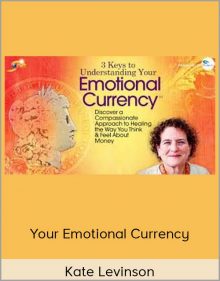

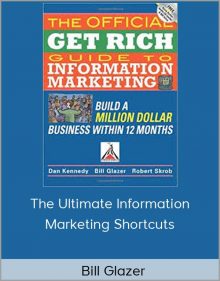


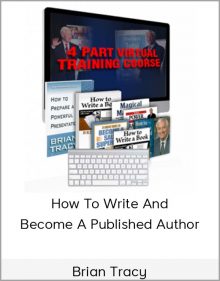

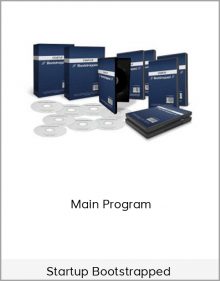


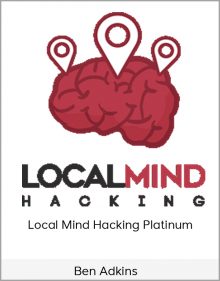
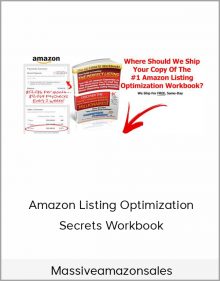
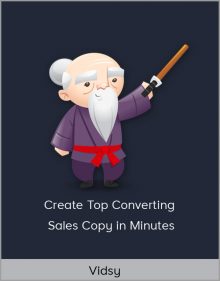


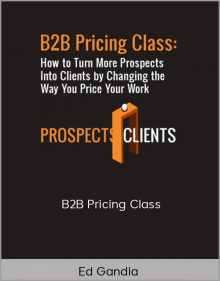


Reviews
There are no reviews yet.